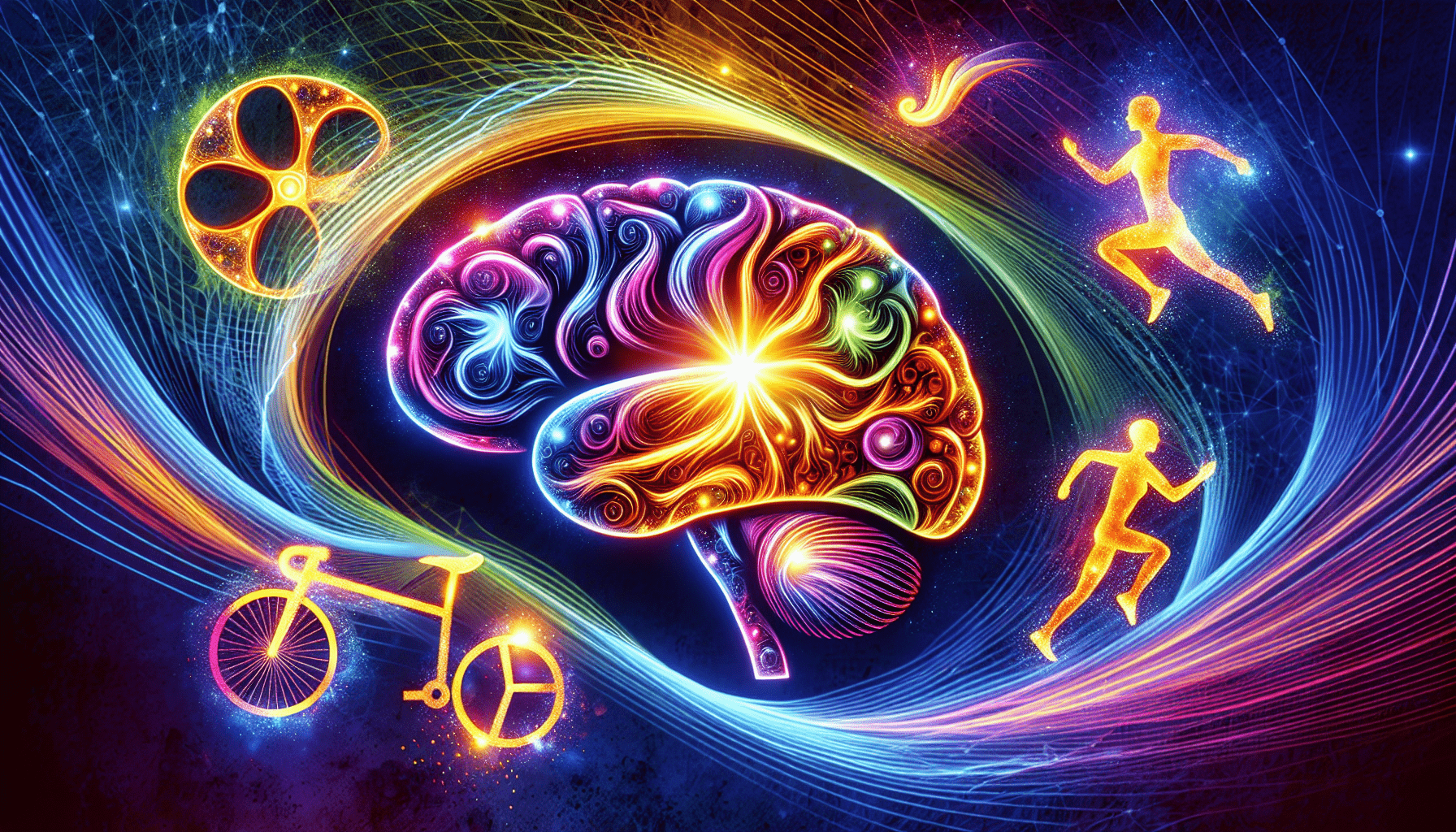Have you ever considered how consistently engaging in physical exercise could enhance your cognitive abilities? It's fascinating to learn that your everyday workout routine has the potential to do more than just boost your physical health. Recent research provides compelling evidence that regular physical exercise significantly contributes to your cognitive health, impacting everything from memory retention to problem-solving skills.
Understanding Cognitive Health
Cognitive health refers to the ability of your brain to function properly. This includes crucial abilities such as memory, learning, decision-making, and attention. Maintaining cognitive health is vital, particularly as you age. It's not only about preventing cognitive decline or conditions like dementia; cognitive health influences your ability to carry out everyday tasks and enjoy life to its fullest.
The Brain-Body Connection
Physical exercise influences cognitive health through a complex interaction between your brain and body. When you exercise, your body releases chemicals like endorphins and growth factors that benefit both the body and mind. These chemicals contribute to creating new brain cells, enhancing neuronal connections, and ultimately improving brain function.
How Exercise Influences Cognitive Function
Regular physical activity has been shown to have numerous positive effects on cognitive function. These improvements touch various cognitive domains, offering a comprehensive boost to your mental capabilities.
Improved Memory and Learning
Exercise positively impacts two crucial areas: memory retention and learning capacity. Studies indicate that engaging in regular physical exercise boosts the size and function of the hippocampus, the brain region associated with memory and learning. This enhancement helps you absorb information more efficiently and recall it when necessary.
Enhanced Concentration and Attention
Consistent exercise increases your brain's ability to concentrate and manage tasks efficiently. Physical activity improves blood flow to the brain, which helps in enhancing focus and attention. As a result, you become better at maintaining your concentration on tasks and filtering out distractions.
Better Problem-Solving Skills
Exercise contributes to the development of problem-solving abilities by fostering creativity and enhancing executive functions, which are essential for decision-making and task management. Engaging in activities such as aerobics, dancing, or yoga stimulates brain areas that are responsible for high-level thinking and planning.

Exercise and Mental Health: A Synergistic Relationship
Mental health significantly influences cognitive function. Exercise plays a crucial role in maintaining your mental well-being, which, in turn, supports your cognitive health.
Reducing Stress and Anxiety
Physical exercise is an effective tool for managing stress and anxiety. Participating in regular physical activity reduces the levels of stress hormones like cortisol while releasing endorphins, which are natural mood lifters. Lower stress levels improve your mental clarity and cognitive performance.
Combating Depression
Engaging in regular exercise can be as effective as medication or therapy for treating mild to moderate depression. The endorphins released during exercise not only boost your mood but also promote a sense of well-being. By improving your mental health, exercise indirectly enhances your cognitive functionality.
Age and Exercise: Cognitive Benefits Over Time
While the cognitive benefits of exercise are notable at any age, they are particularly significant as you grow older. Age-related cognitive decline can be mitigated through regular physical activity.
Slowing Cognitive Decline
As you age, certain cognitive functions naturally decline. Exercise helps slow this process, maintaining your mental sharpness for a longer time. It reduces the risk of developing neurodegenerative conditions like Alzheimer's and dementia by enhancing brain plasticity and promoting neurogenesis.
Enhancing Lifelong Learning
The cognitive benefits of exercise foster lifelong learning and adaptability. By keeping your brain fit through physical activity, you're more likely to engage in new experiences and skills, thereby keeping your mind agile and open to growth.

Types of Exercise and Their Cognitive Benefits
Different types of exercise offer varying cognitive benefits. Finding the right balance of cardiovascular, strength, and flexibility exercises can optimize your cognitive health.
Aerobic Exercise
Aerobic exercises, like running, swimming, or cycling, are known for significantly boosting cognitive function. These exercises enhance cardiovascular health, promoting better blood flow and oxygen supply to the brain. Regular aerobic activity is highly effective for memory improvement and mood stabilization.
Strength Training
While strength training is primarily associated with muscle development, it also provides cognitive benefits. Lifting weights or engaging in resistance training enhances executive function, attention, and focus. It also fosters the release of hormones that improve brain health and cognition.
Flexibility and Balance Exercises
Activities such as yoga and pilates improve flexibility and balance, which are crucial for overall physical coordination. These exercises also enhance cognitive awareness, reduce stress, and promote better mental clarity through mindful movement and breathing techniques.
Incorporating Exercise into Your Routine
Starting an exercise regimen might seem challenging, especially if you lead a busy lifestyle. However, incorporating regular physical activity into your daily routine is both achievable and rewarding.
Setting Realistic Goals
When aiming to boost cognitive health through exercise, set realistic and attainable goals. Begin with small, manageable changes, such as brisk walks or short fitness classes. Gradually increase the intensity and duration as you grow more comfortable with your routine.
Finding Activities You Enjoy
Engagement and consistency are key to reaping the benefits of exercise. Choose activities you enjoy, whether it's a dance class, swimming, or a group sport. Enjoyable exercise is more sustainable over the long term and enhances your commitment to maintaining a regular schedule.
Monitoring Progress and Adjusting Accordingly
As you continue exercising, monitor your progress and adjust your routine to align with your evolving goals. Regular self-assessment allows you to notice cognitive improvements and stay motivated by your achievements.
Keeping a Journal
Keeping an exercise journal can be a valuable tool for tracking your progress. Documenting your workouts, mood changes, and cognitive improvements provides insight into how exercise enhances your mental clarity and health over time.
Seeking Professional Guidance
Consider working with a fitness trainer or physical therapist to design an exercise program tailored to your needs. Professional guidance helps you maintain proper form, preventing injuries, and ensures you engage in activities that maximize cognitive benefits.
Conclusion
The cognitive benefits of regular physical exercise are extensive and impactful. By incorporating physical activity into your life, you nurture not only your physical health but your cognitive abilities as well. From memory enhancement to stress reduction, the rewards of regular exercise manifest in profound ways, empowering you to live a mentally vibrant and fulfilling life.
Embrace this knowledge and take the first step towards integrating exercise into your daily routine. Over time, you'll find that these efforts contribute to a sharper mind and a healthier, happier you.
